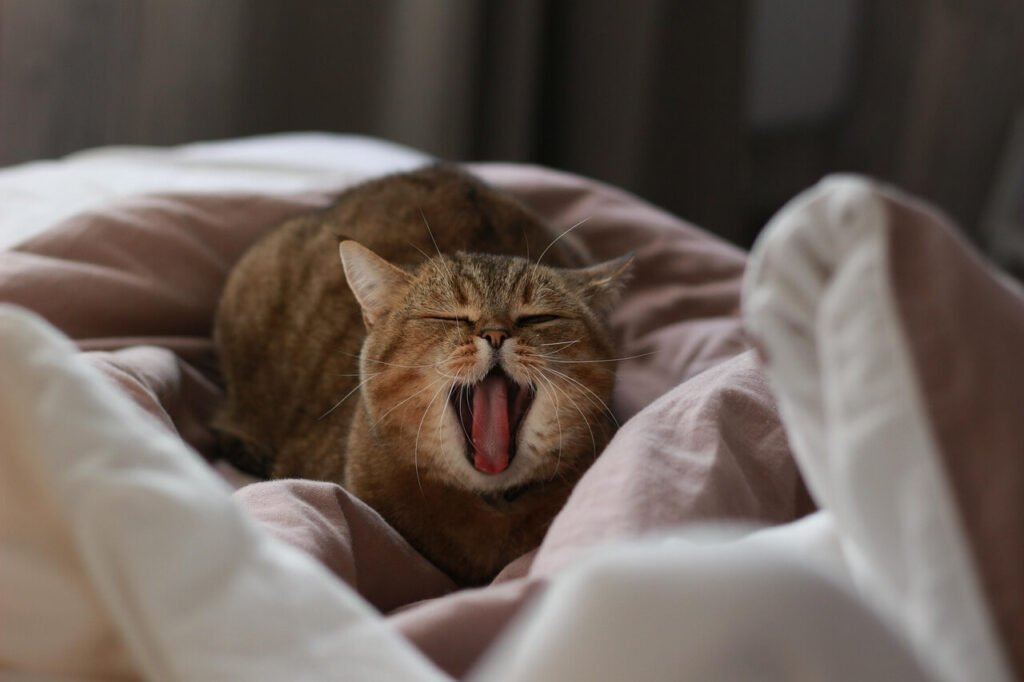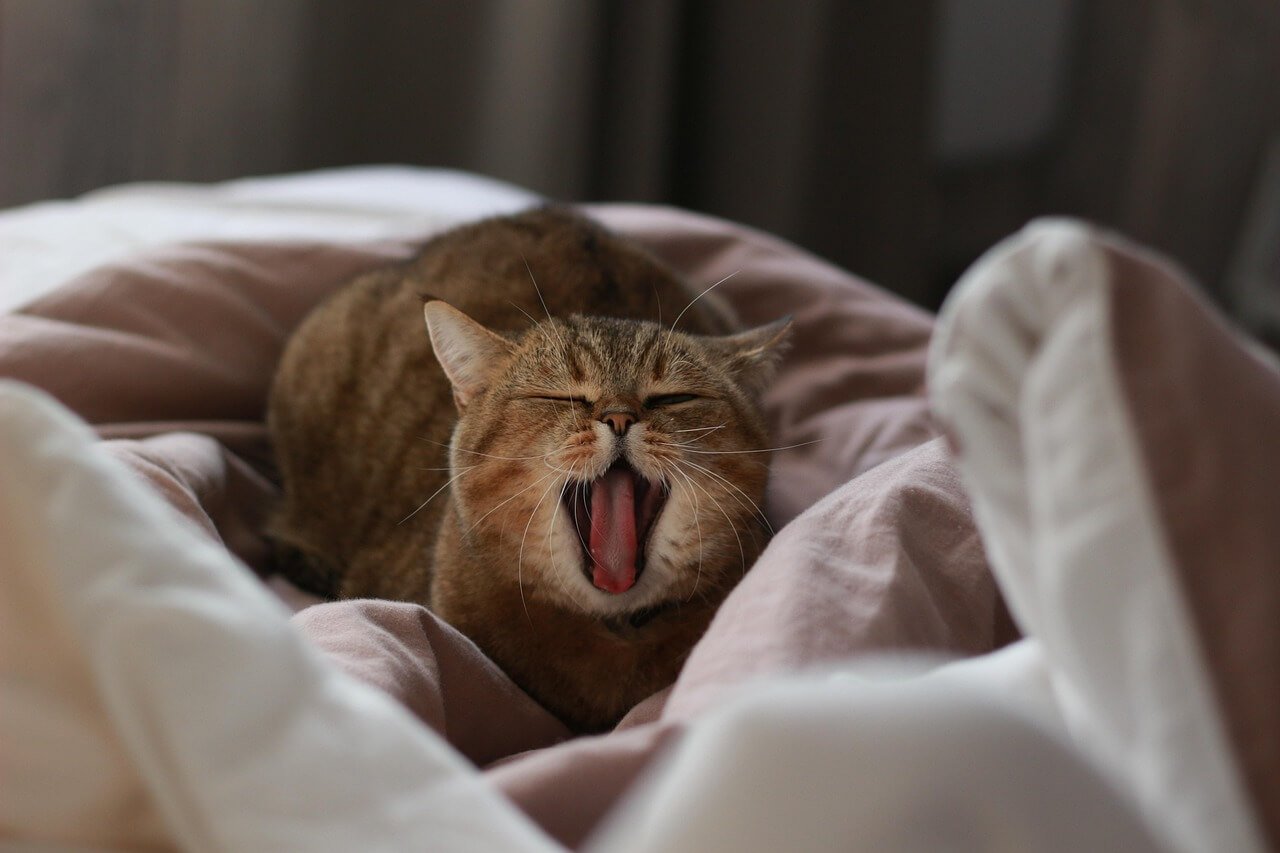Why Is My Cat Meowing So Loudly? Decoding Feline Communication
Cats are fascinating creatures, and their meows often carry hidden messages. Whether you’re a seasoned cat parent or new to the world of feline companionship, one thing is certain: a loud meow can grab your attention like nothing else. But why do cats meow so loudly, and what are they trying to tell us? In this blog post, we’ll explore the reasons behind those piercing vocalizations and provide practical tips to understand your cat’s needs better. From hunger calls to expressions of affection, let’s dive into the symphony of sounds our furry friends create.
Common Reasons for Loud Meowing
Cats communicate through meowing, and understanding the context can help you decode their behavior. Here are some common triggers for loud meowing:
Hunger or Thirst
Cats may meow loudly when they’re hungry or thirsty. If mealtime is approaching, your cat might be reminding you it’s time to fill their bowl.Loneliness or Attention-Seeking
Cats are social animals, and they crave interaction. A loud meow could be their way of saying, “Spend time with me!”Stress or Anxiety
Changes in the environment, such as moving homes or introducing a new pet, can cause stress. Loud meowing might signal discomfort.Health Issues
Persistent loud meowing could indicate an underlying medical condition, such as pain or discomfort. It’s essential to monitor your cat’s behavior.Age-Related Changes
Older cats sometimes meow more frequently due to cognitive decline or hearing loss. This is a natural part of aging.
Understanding these triggers can help you respond appropriately to your cat’s needs. Remember, every meow has a story to tell.
How to Respond to Your Cat’s Loud Meowing
When your cat meows loudly, it’s important to address the situation calmly and thoughtfully. Here are some steps you can take:
Check Their Basic Needs
Ensure your cat has access to fresh water, food, and a clean litter box. Sometimes, the solution is as simple as meeting their basic requirements.Engage in Play
Interactive toys or play sessions can distract your cat and reduce attention-seeking meows. Physical activity also helps burn off excess energy.Create a Calm Environment
Minimize stressors by maintaining a predictable routine. Cats thrive on consistency, so try to keep their surroundings stable.Consult a Veterinarian
If the meowing persists or seems unusual, schedule a vet visit. Early detection of health issues can prevent complications.Provide Mental Stimulation
Puzzle feeders or scratching posts can keep your cat entertained and reduce boredom-related meowing.
By addressing the root cause of your cat’s vocalizations, you can strengthen your bond and ensure their well-being. Patience and observation are key.
Check this guide 👉Why Is My Cat Sneezing and Have Watery Eyes? Best 7 Tips!
Check this guide 👉 Why Is My Cat Growling? best 7 Behavior Tips!
Check this guide 👉 Why Did My Cat Attack Me? Best 7 Expert Behavior Tips!

Reasons for Loud Meowing | Possible Solutions |
|---|---|
Hunger or Thirst | Provide regular meals and water. |
Loneliness | Spend quality time with your cat. |
Stress or Anxiety | Maintain a calm environment. |
Health Issues | Schedule a vet check-up. |
Age-Related Changes | Offer extra comfort and care. |
Tips to Minimize Excessive Meowing
While occasional loud meowing is normal, excessive vocalization can become challenging. Here are some tips to manage it:
Establish a Routine
Cats thrive on predictability. Set consistent feeding, play, and bedtime schedules to reduce anxiety.Reward Quiet Behavior
Positive reinforcement works wonders. Reward your cat with treats or praise when they remain quiet for extended periods.Ignore Attention-Seeking Meows
Giving in to demands can reinforce unwanted behavior. Stay patient and avoid responding immediately to loud meows.Introduce New Toys
Novelty keeps cats engaged. Rotate toys regularly to keep them interested and entertained.Use Calming Products
Consider pheromone diffusers or calming sprays to soothe anxious cats.
By implementing these strategies, you can create a harmonious environment for both you and your feline companion. Remember, consistency is crucial.
When to Seek Professional Help
Sometimes, loud meowing requires professional intervention. Here are signs that it’s time to consult an expert:
Sudden Behavioral Changes
If your cat’s meowing pattern shifts dramatically, it could indicate an underlying issue.Persistent Vocalization at Night
Excessive nighttime meowing may disrupt your sleep and signal distress.Aggression or Withdrawal
Changes in personality, such as aggression or withdrawal, warrant a vet visit.Difficulty Moving or Eating
These symptoms paired with loud meowing could point to a medical condition.Unexplained Weight Loss
Significant weight changes alongside increased vocalization should not be ignored.
Early intervention can make a significant difference in your cat’s health and happiness. Trust your instincts and seek help when needed.
Understanding Your Cat’s Personality
Every cat has a unique personality, and their meowing patterns often reflect this. By observing your cat’s behavior, you can better understand what they’re trying to communicate. Here are some insights into how personality influences meowing:
Chatty Cats
Some cats are naturally more vocal than others. Breeds like Siamese or Maine Coons are known for their talkative nature.Shy Cats
Introverted cats may meow softly or rarely, preferring to communicate through body language instead.Confident Cats
Bold and outgoing cats might use loud meows to assert dominance or demand attention.Nervous Cats
Anxious cats may meow excessively when they feel threatened or insecure.Playful Cats
High-energy cats often meow during playtime, expressing excitement and engagement.
Understanding your cat’s personality can help you interpret their meows more accurately. Embrace their individuality and respond with care.
Creating a Cat-Friendly Home Environment
A comfortable and stimulating environment can reduce unnecessary meowing and promote harmony in your home. Here are some tips to create a space your cat will love:
Provide Vertical Space
Cats love to climb. Install shelves or cat trees to give them a bird’s-eye view of their surroundings.Designate Quiet Zones
Create safe, quiet areas where your cat can retreat when they need solitude.Incorporate Scratching Posts
Scratching posts satisfy your cat’s natural instincts and prevent furniture damage.Offer Hiding Spots
Boxes or cozy beds provide security and comfort, especially for shy or anxious cats.Use Calming Scents
Lavender or chamomile scents can help soothe stressed cats and reduce vocalization.
A well-designed home environment can significantly improve your cat’s well-being. Invest time in making your space cat-friendly, and you’ll notice positive changes in their behavior.
Strengthening the Human-Cat Bond
Building a strong bond with your cat goes beyond meeting their basic needs. It involves creating trust, understanding, and mutual respect. Here are some ways to deepen your connection:
Learn Their Preferences
Observe what your cat enjoys, whether it’s belly rubs, chin scratches, or playtime with specific toys.Talk to Your Cat
Engage in gentle conversations with your cat. While they may not understand words, they recognize tone and affection.Respect Their Boundaries
Give your cat space when they need it, and avoid forcing interactions.Celebrate Small Wins
Reward milestones, like learning a new trick or overcoming fear, with treats or praise.Spend Quality Time Together
Dedicate time daily to focus solely on your cat, whether it’s grooming, playing, or cuddling.
A strong bond fosters trust and reduces stress-related behaviors like excessive meowing. Cherish the moments you share with your feline companion—they enrich both your lives.
Frequently Asked Questions About Loud Cat Meowing
Why does my cat meow so much at night?
Cats are naturally more active at night. Ensuring they’re tired before bedtime can help reduce nighttime meowing.
Is loud meowing a sign of illness?
It can be. Persistent or unusual meowing may indicate pain, discomfort, or other health issues.
How can I stop my cat from meowing for attention?
Ignore attention-seeking meows and reward quiet behavior to encourage positive habits.
Do older cats meow more than younger ones?
Yes, senior cats may meow more due to age-related changes like hearing loss or cognitive decline.
Should I punish my cat for loud meowing?
No, punishment can increase stress and worsen the behavior. Focus on positive reinforcement instead.
Building a Stronger Bond Through Understanding
Loud meowing is more than just noise—it’s your cat’s way of communicating their needs, emotions, and concerns. By listening closely and responding thoughtfully, you can strengthen your bond and ensure your feline friend feels loved and understood. Remember, every cat is unique, and patience is essential when decoding their vocalizations. With the right approach, you can transform those loud meows into moments of connection and joy.
Dog Tapeworm Life Cycle: Best 7 Expert Tips! – Learn how tapeworms infect dogs, spot symptoms, and break the cycle with expert prevention strategies.
Anxious Cat Body Language: Best 7 Expert Tips! – Learn to spot signs of stress, understand triggers, and help your cat feel safe and relaxed.
Anxious Dog Body Language: Best 7 Expert Tips! – Learn to spot signs of anxiety, respond effectively, and help your dog feel safe and secure.
Is Breeding Dogs Bad? Best 7 Expert Tips! – Explore the ethics, benefits, and risks of dog breeding to make informed decisions for a better future.





